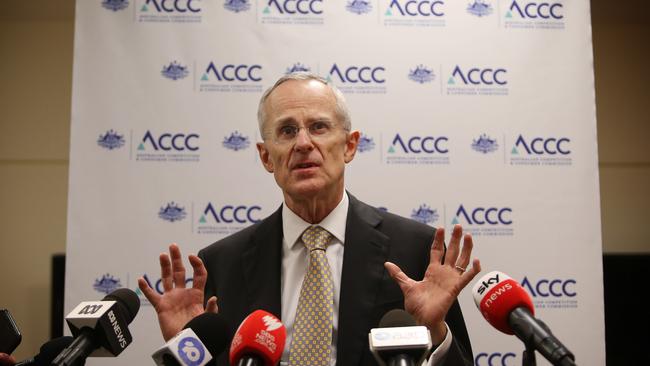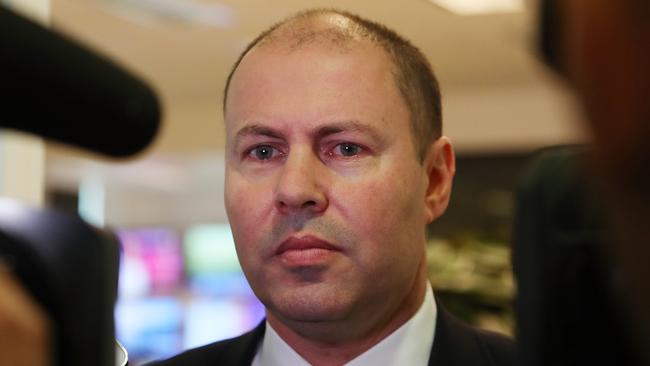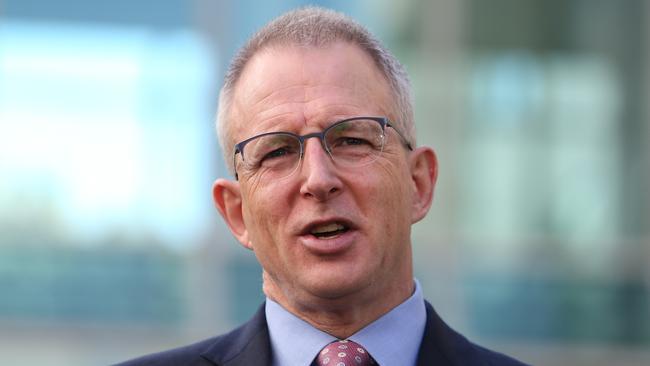Tech titans Facebook, Google and Twitter increase the heat on MPs
Digital giants have unleashed a last-ditch round of political lobbying.

Digital giants Facebook, Google and Twitter have unleashed a last-ditch round of political lobbying in Canberra, in a bid to pressure the Morrison government into rolling back its response to the competition watchdog’s digital platforms inquiry.
Staff and lobbyists from the online behemoths and their industry body Digi met senior MPs in Parliament House last week and told them the recommendations from the Australian Competition & Consumer Commission were too harsh. The move came amid revelations the government was gearing up to delay its response to the ACCC’s inquiry until next year, despite receiving the groundbreaking report almost six months ago.
READ MORE: Privacy, ads focus of reply to report | Editorial: Big tech damaging journalism | Google concerned about ACCC recommendations | ACCC’s struggle to rein in big tech
The Australian understands cabinet was expected to discuss the issue on Monday, with Treasurer Josh Frydenberg, Communications Minister Paul Fletcher and Attorney-General Christian Porter involved in framing a formal response to the report.
The government’s deliberations come as media companies demand reforms to press freedom through the Your Right to Know campaign.
Industry sources said one recommendation the government was seriously considering was whether to set up a digital platforms unit within the ACCC, which would take the lead in further investigations.
ACCC chairman Rod Sims declined to comment on Monday.

Opposition technology spokeswoman Clare O’Neil said on Monday the government was going soft on social media giants and suggested industry lobbying was behind the delay.
“We know the big tech companies are very concerned about it because they are very worried the Australian legislation will set a global precedent for the obligations owed by tech companies and I’m worried they are exerting undue influence,” Ms O’Neil said.
She held back from supporting a code of conduct between traditional media and social media companies, which could lead to revenue-sharing deals for the use of journalism on Facebook and Google. “It is very concerning to me that they are essentially using journalism that is very costly to news organisations to generate revenues to themselves and not sharing any benefits,” Ms O’Neil said.
“Exactly what policy mechanism we use to deal with that problem, I’m not sure what the answer is to that. But it needs to be dealt with.”

Mr Frydenberg promised after receiving the report in July to offer a government response by the end of this year. Mr Sims’ report was hailed as a world-leading response to the growth of technology platforms, their impact on consumers and the growing use of personal data to generate billions of dollars in advertising revenues.
Last week Digital Industry Group Inc launched a “Parliamentary Friends of the Digitally Enabled Economy” group that was co-founded by Liberal MP Dave Sharma and Labor’s Anne Aly.
The Australian understands Digi representatives continued to plead their case to MPs that ACCC recommendations — including a code of conduct — were too harsh. While a Digi representative said the meeting was not held to discuss the government’s response to the ACCC report, she added: “I’m sure they would have asked questions at any opportunity.”
The subject was broached with Ms O’Neil, but Digi denied the issue was discussed during another meeting with the office of Technology Minister Karen Andrews. The industry body has been critical of the ACCC. Digi described Mr Sims’ final report as lacking in “substantive analysis” and said it made “no more than a passing acknowledgment” of the contribution digital products made. The digital platforms have some of Canberra’s heaviest hitters in terms of public relations advisers and lobbyists.

Google has influential public relations firm Newgate as one of its registered lobbyists. The group’s representatives recently advised the crisis-ridden banks.
Nick Campbell and his APAC Nexus Group are also a registered lobbyist for Google, as are Canberra-based TG Endeavour. TG Endeavour’s principal partner and registered lobbyist is Brendan Tegg, former director of policy for Scott Morrison. Former Labor communications minister Stephen Conroy serves as the company’s chairman. When contacted, Mr Conroy said he had done advisory work for Google but did not lobby for the company.
A spokesman for Google said: “We are regularly in Canberra for discussions with various stakeholders on a range of matters.”
Facebook has former Australian Communications and Media Authority senior executive Andrew Kerans as a registered lobbyist in Canberra. A Facebook representative said: “We proactively meet with a range of stakeholders — from governments and experts to non-profit organisations — to help them understand how our platforms operate and answer any questions they may have about our services. We will continue to do more of this as we work with governments around the world on a clear framework of rules for the internet.”
Mr Sims warned last month Australia would be left behind if the government did not give the watchdog fresh powers to block mergers and acquisitions involving tech titans. Following its inquiry into digital platforms, the ACCC called for new laws allowing it to block tech giants from buying start-ups, if the acquisition risked thwarting a potential competitor from being created.




To join the conversation, please log in. Don't have an account? Register
Join the conversation, you are commenting as Logout